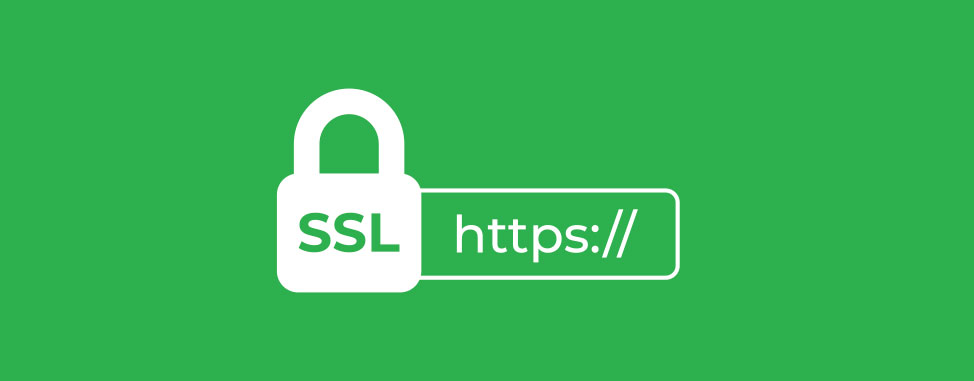An SSL certificate displays important information for verifying the owner of a website and encrypting web traffic with SSL/TLS, including the public key, the issuer of the certificate, and the associated subdomains.
So, what exactly is an SSL certificate?
Websites can switch to the more secure HTTPS protocol, which requires an SSL certificate. The root server of a website is where you can find an SSL certificate. The public key and identity of the website, as well as other pertinent information, are contained in SSL certificates, which enable SSL/TLS encryption.
Devices that want to establish a connection with the original server will use this file as a reference to get the public key and confirm the server’s legitimacy. Encryption and secrecy are maintained for the private key.
How do SSL certificates work?
Transport Layer Security (TLS) is a protocol that encrypts data sent over the Internet and verifies the identity of servers. Internet Protocol Secure (HTTPS) is used by all websites.
The following pieces of information are contained in a single data file with SSL certificates:
SSL certificates include the following information in a single data file:
- The domain name that the certificate was issued for
- Which person, organization, or device it was issued to
- Which certificate authority issued it
- The certificate authority’s digital signature
- Associated subdomains
- Issue date of the certificate
- Expiration date of the certificate
- The public key (the private key is kept secret)
To encrypt and sign data, SSL makes use of public and private keys, which are just lengthy strings of characters. The private key is required to decrypt data encrypted using the public key.
Any device making a request to load a website receives the certificate from the server where the website originated. The SSL certificate may be viewed in most browsers; for example, in Chrome, you can access it by clicking the padlock icon on the left side of the URL bar.

What is the purpose of an SSL certificate for websites?
An SSL certificate is essential for a website for several reasons, including protecting user data, establishing ownership, warding off attackers who might try to create a fake site, and earning users’ confidence.
Encryption: Because SSL certificates allow for the pairing of public and private keys, encryption using SSL/TLS is feasible. The SSL certificate of a server is where clients, such web browsers, acquire the public key that is required to establish a Transport Layer Security (TLS) connection.
Authentication: For security reasons, SSL certificates ensure that a client is communicating with the legitimate domain owner’s server. Domain spoofing and similar assaults can be lessened using this.
HTTPS: An SSL certificate is required for an HTTPS web address, which is particularly important for enterprises. Websites that use SSL/TLS encryption to encrypt user traffic are known as HTTPS websites.
In addition to protecting users’ information while in transit, HTTPS also increases users’ confidence in websites. The majority of browsers prominently label HTTP sites as “not secure” in an effort to encourage users to move to HTTPS and enhance security, even though most users won’t notice the difference between the two.
Unsecure Web Browsing with an SSL Certificate
How to get an SSL certificate for your website.
A certificate authority (CA) is the place where domains can get legitimate SSL certificates. A certificate authority (CA) is an independent, third-party entity that issues SSL certificates. In order for client devices to be able to verify the certificate, the CA will digitally sign it using their private key. The issuance of an SSL certificate will incur a price from the majority of CAs.
The installation and activation of the certificate on the server that hosts the website must be done once it is issued. Website operators typically have this taken care of by web hosting providers. All traffic to and from the website will be encrypted and protected once it is activated on the origin server, allowing it to load over HTTPS.
A self-signed SSL certificate; what is it?
In theory, everyone can make their own SSL certificate by combining the aforementioned pieces of information with a public-private key combination. Websites that utilize their private key instead of a digital signature from a CA to authenticate their SSL certificates are known as self-signed certificates.
The problem with self-signed certificates is that no third party can confirm the identity of the origin server. Websites using self-signed certificates may still be marked as “not secure” by browsers, even when they have a https:// URL. They could even disconnect completely, rendering the website inaccessible.
Can I acquire an SSL certificate without paying anything?
With the launch of Universal SSL, Let’s Encrypt, SSL for Free, and more in September 2014, free SSL/TLS encryption is available. But it’s not without some limitations so hackers and evil-doers can’t run free.
Both free and paid SSL certificates are safe, but paid SSL certificates can offer additional performance optimizations such as HTTP/2 support or advanced caching features, depending on the provider.
Need an SSL Certificate? We can help.
Extensive use of HTTPS is a major step in the direction in making the Internet a safer place. With SSL/TLS encryption, user data is safeguarded, assaults are prevented, and the Internet becomes a safer environment for everyone.
SSL certificates come FREE with our Managed Website Hosting packages. They can be purchased individually too, here – https://websolutions.greatscottsites.com/products/ssl


0 Comments